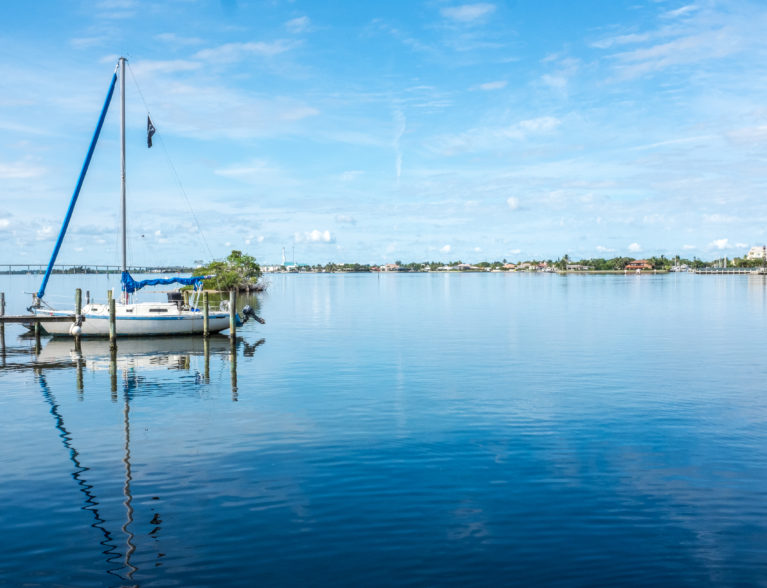
The Clean Water Coalition of Indian River County last week presented a comprehensive legislative and regulatory manifesto for 2020 to the county’s two state lawmakers aimed at restoring the health of the ailing Indian River Lagoon and ensuring a safe, adequate drinking water supply.
Vero Beach’s Paul Fafeita – president of the 500-member coalition – delivered a three-page list of recommendations to Sen. Debbie Mayfield and Rep. Erin Grall that includes a proposed 0.25-mill property tax increase earmarked for water management districts to pay for cleaning up local water bodies and meeting Florida’s growing demand for clean drinking water.
The property tax impact of the increase for a home valued at $200,000 with a $50,000 homestead exemption would amount to an additional $37.50 per year, the group calculated.
“We have a major water crisis in Florida,” Fafeita told the legislative delegation meeting at Indian River County Commission chambers Sept. 24. “Excess nitrogen, sewage spills, septic systems failing, toxic algae is occurring. Our economy is suffering. Our quality of life is declining. It is time for the state of Florida to get serious about stopping the pollution sources. The problem is too big for local funding alone.”
The coalition’s list of proposals – drafted in conjunction with the Brevard Indian River Lagoon Coalition – calls for raising $421 million through the water management millage increase, plus city/county matching funds; raising $118 million by imposing a statewide water withdrawal fee of 5 cents per 1,000 gallons; restoring $300 million in funding to Florida Forever – the state’s premiere conservation and land acquisition program – from taxes imposed on real estate transactions.
Together, the coalitions contend, those revenues would total about $1.26 billion per year – a leg up in meeting the $5 billion cost estimated by the Indian River Lagoon National Estuary Program for restoring the lagoon.
But the clean water advocates didn’t stop there; they are proposing a slew of additional corrective actions to fix Florida’s troubled waters: statewide incentives for projects aimed at eliminating biosolids, or partially treated sewage, used to fertilize farm fields; stricter regulations on local utilities to keep infrastructure in good repair; financial penalties for sewage spills; requiring advanced treatment systems for septic tanks near water bodies; requiring all septic systems to be inspected every five years; improving stormwater treatment systems; enforcing current no-discharge zones for boats in local water bodies; and making sure every state watershed complies with rules to reduce nitrogen, phosphorus and sediment discharges.
Fafeita said a copy of the manifesto has been delivered to Gov. Ron DeSantis.
“We need strong leadership with the political will to fix the problem,” Fafeita told Grall and Mayfield. “We need strong leadership not afraid to invest in Florida’s future.”
“You guys have really done a stellar job in your research with providing us valuable suggestions for solutions,” Mayfield said.
The 2020 Florida legislative session convenes Jan. 14. Committee meetings to discuss bills will be held beforehand.



